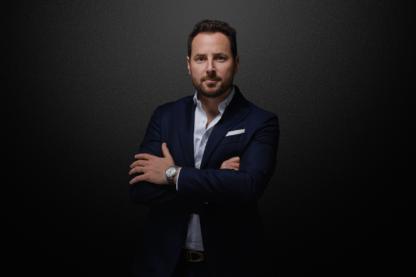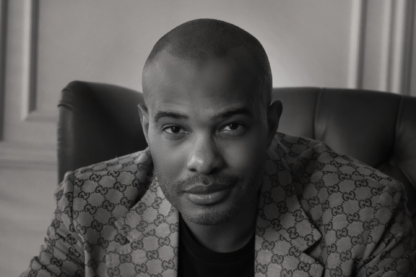In this exclusive interview, Alexander Chetchikov, President of the World Luxury Chamber of Commerce, sits down with Neen James, a globally recognized leadership strategist and luxury expert. Renowned for her work with some of the world’s most influential executives, Neen has redefined leadership by applying the principles of luxury—attention, personalization, and deep human connection. With her upcoming book, Exceptional Experiences: Five Luxury Levers to Elevate Every Aspect of Your Business, set to revolutionize how leaders approach client relationships, she shares her insights on why luxury is more than just exclusivity—it’s about creating transformational experiences.
Alexander Chetchikov: Neen, your work as a leadership strategist and luxury expert is inspiring. How do you define luxury in today’s business landscape, and how does it intersect with leadership and executive success?
Neen James: Luxury is about experiences—it’s fundamentally about attention and human connection. It’s how you make people feel seen, heard, and valued in every interaction.
The most successful leaders adopt what I call a “concierge mindset” rather than a “bellhop mindset.” A bellhop prioritizes efficiency, while a concierge focuses on deepening relationships. This distinction transforms transactional client relationships into transformational ones.
Our proprietary research study into the luxury mindset revealed that luxury transcends industry. By applying principles of personalization, exclusivity, and exceptional attention, leaders elevate their impact and create meaningful connections that drive business success.
Alexander Chetchikov: Your upcoming book, Exceptional Experiences: Five Luxury Levers to Elevate Every Aspect of Your Business, explores strategies to enhance leadership and sales through luxury principles. Can you share a sneak peek into these luxury levers and how they can transform executive performance?
Neen James: My Experience Elevation Model™ features five luxury levers that systematically transform client relationships. These levers increase mind share and market share for brands by staying top of mind and driving revenue.
Entice—captivating attention through compelling storytelling, answering the question: “Why should I pay attention to you?”
Invite—demonstrating your experience through sophisticated communication that creates a sense of belonging, addressing: “How do I get access to that special level?”
Excite—creating share-worthy experiences engaging all five senses, prompting clients to wonder: “What else will they do?”
Delight—anticipating needs clients didn’t even know they had, making them ask: “How did they know what I needed?”
Ignite—transforming satisfied clients into passionate advocates who naturally ask: “Who else can I tell about my experience?”
Alexander Chetchikov: In a rapidly evolving market, what key strategies must executives adopt to lead with impact while maintaining the exclusivity and prestige associated with luxury brands?
Neen James: Today’s luxury leadership requires balancing seeming contradictions—embracing innovation while honoring heritage, leveraging technology while preserving human connection.
Leaders must implement systematized thoughtfulness—intentionally build processes ensuring consistent, personalized attention at scale.
Leaders need to “listen with your eyes”—pay full attention, notice what isn’t being said, and understand our clients on a deeper level. In luxury, anticipating what clients don’t even know they need, separates good from exceptional.
Becoming fluent in speaking the “luxury language” clients need to hear to attract different luxury mindsets. In our proprietary research study, we found there are four luxury mindsets: reluctant and removed, pro-prioritizer, confident and content and luxury lover. Whether connecting with a “luxury lover” who believes everyone deserves luxury or a “pro prioritizer” who uses luxury to enhance their career, speaking their luxury language creates instant rapport, helps accelerate the sales process, and builds brand advocates.
Mastering creating “champagne moments”—transforming everyday interactions into extraordinary memories through thoughtful details and personalized touches.
Exclusivity today doesn’t mean being unavailable—it means creating personalized experiences that couldn’t be replicated for everyone.
Alexander Chetchikov: You’ve worked with some of the most influential leaders in the world. What defining traits set apart exceptional executives when it comes to leading in high-stakes luxury industries?
Neen James: Working with leaders across luxury travel, hospitality, financial services, and real estate, I’ve noticed distinctive traits that set exceptional executives apart and make them remarkable.
Clear vision – they see possibilities where others see limitations. In my keynotes, I share the story and heritage of Veuve Clicquot. Madam Clicquot was an inspiring leader who revolutionized champagne by inventing the riddling process, a process still used today; great leaders transform industries through their refusal to accept the status quo.
Confidence – the most influential luxury leaders possess what I call “contagious confidence” – that magnetic quality that inspires absolute trust and elevates everyone around them. Their teams naturally mirror this confidence in client interactions.
Curiosity – leaders that approach relationships with profound curiosity, asking thoughtful questions and listening with intention.
Communication – exceptional communication skills, articulating vision with clarity across all platforms – from boardroom presentations to handwritten notes. They have a commanding presence and leverage sophisticated storytelling and authentic delivery to create memorable moments in any setting, making the complex appear effortless while maintaining their distinctive luxury voice.
Alexander Chetchikov: Leadership and luxury are both evolving at an unprecedented pace. What major shifts do you foresee in these sectors over the next 5-10 years, and how should leaders prepare to stay ahead?
Neen James: The luxury landscape is transforming dramatically, with several key shifts that savvy leaders must navigate. We’re witnessing a beautiful evolution from pure exclusivity toward thoughtful inclusivity—luxury will maintain its exceptional quality while expanding beyond price point to experiences that make more people feel valued.
Simultaneously, integrating high-tech and high-touch approaches will reach new sophistication, with AI handling routine interactions while human talent delivers deeper personalization. Sustainability has become non-negotiable as luxury clients demand environmental responsibility without compromising quality, creating opportunities in the emerging circular luxury economy.
As digital experiences become ubiquitous, we’ll see a renewed appreciation for craftsmanship, storytelling, and authenticity. The narrative behind products—their heritage and creators—will become even more vital. This connects to another significant shift: Luxury is becoming even more experiential rather than possession-focused, with products valued for the memories and feelings they create. You’ve heard me say that luxury is about experiences, not things.
The leaders who thrive will cultivate a luxury mindset—the ability to envision bold futures while implementing pragmatic steps toward them. This requires continuous learning, diverse perspectives, and carving out space for strategic thinking amidst daily operations. The future belongs to those who honor tradition while fearlessly embracing innovation.
Alexander Chetchikov: Your expertise in keynote speaking empowers executives to refine their leadership strategies through luxury, sales, and influence. What is the most impactful mindset shift leaders need to make to create exceptional experiences within their organizations?
Neen James: Exceptional leaders understand they must move from transactional to transformational experiences for their clients and team to increase mind share (be top of mind) and market share (to drive revenue).
We can’t just capture the attention of clients and demonstrate our expertise; we must anticipate needs our clients didn’t even know they had, delight them with our products and services, and then ignite them to become advocates for our brand.
Leaders must stop thinking like bellhops and start thinking like concierges.
Bellhops are essential, focusing on efficiency and transactions—moving you through the hotel quickly. In business, this translates to prioritizing metrics and short-term results.
A concierge is vital and focuses on relationships and long-term satisfaction. They don’t just solve immediate needs—they anticipate future desires. They don’t just know your name—they remember your preferences.
When leaders adopt a concierge mindset, they stop asking, “How can I close this deal quickly?” and start asking, “How can I build a relationship that creates an advocate for life?” They transform from managing transactions to curating transformations.
This shift doesn’t require massive budgets—it requires intentionality, upskilling teams to listen deeply, and creating space for personalization and customization within standardized processes.
Luxury isn’t what you sell; it’s how you make people feel. When leaders embrace this truth, they create organizations that don’t just satisfy clients—they delight them.
Alexander Chetchikov: Finally, as a board member, which World Luxury Chamber of Commerce initiatives are you most excited about?
Neen James: I’m energized by three WLCC initiatives:
The Luxury Library builds an invaluable repository of wisdom, preserving our industry’s heritage while inspiring innovation. I’m passionate about contributing research findings from my luxury mindset studies to this growing resource. I am even more excited for our members to read my new book, Exceptional Experiences: Five Luxury Levers to Elevate Every Aspect of Your Business, in October!
The Luxury Education Hub aligns perfectly with my passion for elevating luxury leadership through transformational learning. I’m excited about developing and delivering executive programs and webinars to help our members understand the psychological dimensions of exceptional experiences—creating moments that build lasting loyalty.
The Luxury People Magazine provides a beautiful showcase for the human stories behind luxury brands. I love how it facilitates cross-industry pollination—a hotelier finding inspiration from a jewelry designer’s approach to personalization, for example.
Together, these initiatives elevate our entire luxury ecosystem by fostering collaboration and the cross-pollination of ideas. That’s something worth raising a glass of champagne to—and you know how I feel about creating champagne moments!
Thank you, Neen!
As this conversation with Neen James comes to a close, one thing is clear: Luxury leadership is evolving, and those who master the art of personalized, transformational experiences will define the future of the industry. From her proprietary research on the luxury mindset to her five luxury levers, Neen offers a powerful roadmap for executives who want to elevate their leadership, deepen client relationships, and drive long-term success. With her contributions to the World Luxury Chamber of Commerce and the upcoming launch of her book, Neen continues to shape the landscape of luxury and leadership. As she so eloquently puts it, “Luxury isn’t what you sell; it’s how you make people feel”—a philosophy that will undoubtedly inspire leaders for years to come.
Follow Neen on LinkedIn here & stay up to date on the latest in luxury, here: https://worldluxurychamber.com/category/expert-articles-interviews/
Source & Copyright: https://neenjames.com/





